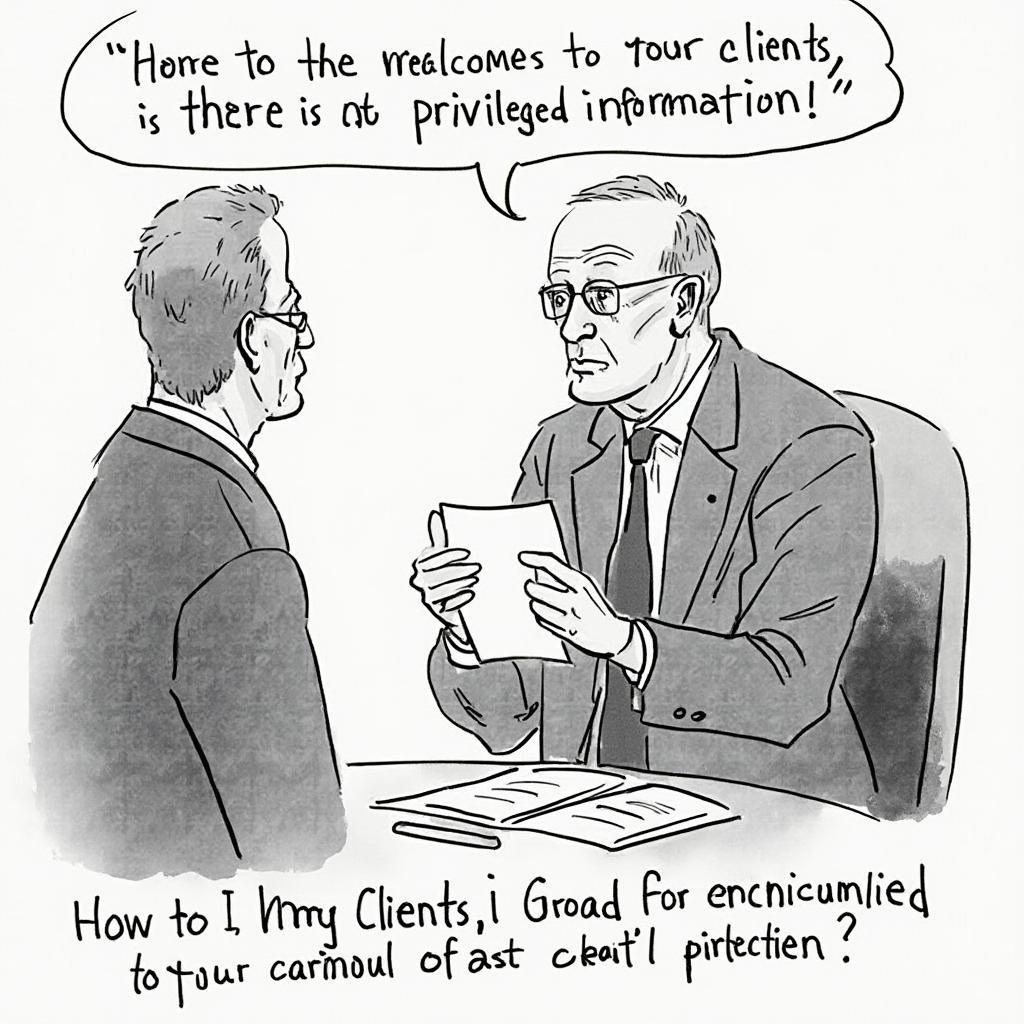
Attorney Client Confidentiality and Third Parties
Attorney-client confidentiality is a cornerstone of the legal system. It fosters trust and open communication between lawyers and their clients, allowing clients to disclose all relevant information without fear of it being used against them. This confidentiality, however, becomes more complex when third parties are involved. Understanding the implications of third-party presence on attorney-client confidentiality is crucial for both attorneys and their clients.
When does attorney-client confidentiality apply with a third party present? The general rule is that the presence of a third party can waive attorney-client privilege. This means that information shared in the presence of a third party is no longer considered confidential and can be disclosed in legal proceedings. However, there are exceptions to this rule.
Exceptions to the Third-Party Rule
Several exceptions protect attorney-client confidentiality even with a third party present. These exceptions often hinge on the role and relationship of the third party to the client and the attorney.
Agents of the Attorney or Client
If the third party is an agent of the attorney or the client, such as a paralegal, translator, or investigator, the privilege generally remains intact. These individuals are considered necessary for the effective representation of the client and are bound by the same confidentiality obligations as the attorney.
Joint Clients
If two or more clients are represented by the same attorney in a common matter, communications between them and the attorney are confidential, even in the presence of each other. This scenario often arises in business transactions or family law matters.
 Joint Clients Meeting With Attorney
Joint Clients Meeting With Attorney
Common Interest Privilege
The common interest privilege protects communications between attorneys representing different clients who share a common legal interest. This often occurs in complex litigation where multiple parties are aligned on a specific legal issue.
Fiduciary Relationships
In certain fiduciary relationships, like guardian and ward or trustee and beneficiary, the presence of the guardian or trustee during attorney-client communications does not waive the privilege.
attorney client privilege exceptions florida
How to Protect Confidentiality with Third Parties Present
While exceptions exist, it’s crucial to take proactive steps to protect attorney-client confidentiality when a third party might be involved.
Clarify the Third Party’s Role
Clearly define the third party’s role and the reason for their presence. Ensure they understand their obligations regarding confidentiality.
Obtain Written Consent
If possible, obtain written consent from the client acknowledging the presence of the third party and the potential impact on confidentiality.
Limit Information Shared
Be mindful of the information shared in the presence of a third party. Avoid discussing highly sensitive or privileged information unless absolutely necessary.
 Attorney Explaining Confidentiality to Client and Third Party
Attorney Explaining Confidentiality to Client and Third Party
Frequently Asked Questions
- Can I bring a friend to a meeting with my attorney? While you can, their presence might waive attorney-client privilege. Discuss this with your attorney beforehand.
- What if the third party is my spouse? While spousal communication is generally privileged, it does not automatically extend to attorney-client privilege.
- What if I accidentally disclose confidential information in front of a third party? Immediately inform your attorney. They can advise on the best course of action.
- Can my attorney disclose information to a third party without my consent? Generally, no. Exceptions exist, such as to prevent harm or comply with a court order.
- Does attorney-client confidentiality extend after the client’s death? Yes, attorney-client privilege survives the client’s death.
- What should I do if I’m concerned about a third party’s presence during my legal consultations? Express your concerns to your attorney. They are obligated to protect your interests and maintain confidentiality to the extent possible.
- How can I be sure my attorney is protecting my confidential information? Openly communicate with your attorney about your concerns and ask them about their procedures for maintaining confidentiality.
attorney client confidentiality
Conclusion
Attorney-client confidentiality is a complex issue, especially when third parties are involved. Understanding the rules and exceptions is vital for protecting your rights. While the presence of a third party can potentially jeopardize confidentiality, taking proactive measures and communicating openly with your attorney can help ensure your privileged information remains protected. Always consult with your attorney if you have any concerns about confidentiality in your specific situation.




